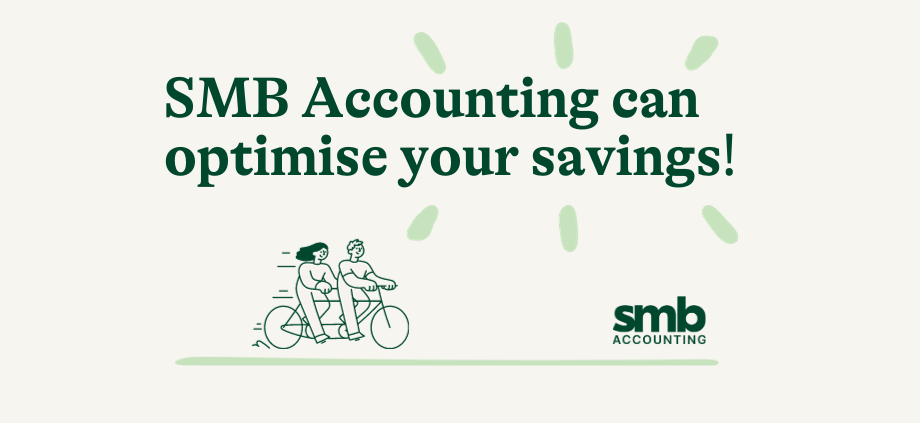Optimising Small Business Tax Savings with SMB Accounting
Navigating the complexities of taxation can be a challenge for small business owners, with tax regulations and deductions constantly evolving. Fortunately, SMB Accounting is here to help you optimise your tax savings through targeted strategies tailored specifically to your small business. Our team of experts offers insights into tax deductions and credits, helping you maximise your tax savings and contribute to the growth and success of your business.
In this blog, we will explore a range of tax-saving strategies that can benefit your small business, from claiming relevant deductions to utilising tax offset programs. We will also discuss the importance of accurately maintaining financial records to ensure compliant and secure tax management.
1. Claiming Business-Related Deductions
One of the most effective ways to maximise your small business tax savings is by claiming deductions for eligible business-related expenses. By familiarising yourself with these deductions and ensuring you claim them, you can significantly lower your tax liability. Some common business-related deductions include:
– Operating Costs: These are everyday expenses that help your business run smoothly, such as rent, utilities, office supplies, and marketing expenses.
– Capital Expenditures: These include costs associated with purchasing or improving assets that have a useful life of more than one year, such as business vehicles, equipment, or property improvements.
– Employee Training: You may be able to claim a tax deduction for the cost of providing education and training to your employees that are relevant to their roles in your business.
It’s important to consult with your accountant or tax advisor to ensure you are claiming all possible deductions and that you are meeting the necessary requirements for each deduction category.
2. Utilising Tax Credits and Offsets
Tax credits and offsets are another valuable resource for reducing your small business tax liability. By taking advantage of these tax-saving schemes, you can achieve additional tax savings beyond regular deductions. Some notable tax credits and offsets for small businesses include:
– Small Business Instant Asset Write-Off: This tax incentive allows eligible small businesses to claim an immediate tax deduction for the full value of new and second-hand assets purchased for the business. Recognising the limits and criteria for this incentive is essential when planning asset acquisitions.
– Research and Development Tax Incentive: Small businesses engaging in eligible research and development (R&D) activities may be able to access a tax offset to reduce their tax liability and support their investment in innovation.
– Low-Income Tax Offset: Certain small business owners who meet specific income thresholds may also be eligible for a low-income tax offset, which can reduce their overall tax payable.
To ensure your small business is taking full advantage of available tax credits and offsets, consult with the experienced team at SMB Accounting for tailored advice.
3. Accurate Financial Record-Keeping
Maintaining accurate, up-to-date financial records is essential for smooth and compliant tax management. Proper record-keeping not only ensures your eligibility for tax deductions but also helps to prevent potential audits or penalties. Some key aspects of accurate financial record-keeping include:
– Keeping Detailed Records: Maintain diligent records of all income, expenses, and GST-related transactions. Ensure these records are well-organised and securely stored, either physically or digitally.
– Retaining Relevant Documentation: Keep relevant documentation, such as invoices, receipts, and bank statements, to support your tax claims and provide evidence for any tax deductions or offsets you wish to claim.
– Staying Informed about Tax Updates: As tax regulations are continually evolving, it’s important to stay informed and adapt your record-keeping practices accordingly. Partnering with a professional accountant or tax advisor can ensure that you remain compliant and up-to-date on the latest tax developments.
4. Enlisting the Support of Professionals
Managing your small business tax obligations can be complex and time-consuming. By engaging the skilled team at SMB Accounting, you can enjoy the following benefits:
– Expert Guidance: Our team has an in-depth understanding of small business tax regulations and can provide tailored advice on how best to maximise tax savings specific to your business’s unique circumstances.
– Time-Saving: Outsourcing your tax management to professionals frees up your valuable time to focus on other pressing aspects of your business, such as strategy, operations, and marketing.
– Risk Mitigation: Seeking expert advice ensures that you are compliant with tax laws and reduces the possibility of costly mistakes or penalties resulting from mismanagement.
By enlisting the professional support of SMB Accounting, you can navigate the complexities of taxation confidently, knowing that your small business is in good hands.
Conclusion
Maximising your small business tax savings is essential for driving growth and ensuring the financial success of your enterprise. By implementing targeted tax-saving strategies, claiming eligible deductions, utilising tax credits and offsets, and maintaining accurate financial records, you can optimise your tax savings and bolster your business’s financial health.
SMB Accounting is your trusted partner, offering expert guidance and support tailored to your small business’s tax management needs. Let our tax consultants equip you with the tools, knowledge, and insights you need to navigate the complexities of taxation effectively, driving your small business towards sustainable growth and prosperity. Contact us today.

